Sutton Hoo: 'Greatest archaeological discovery' gets £4m revamp
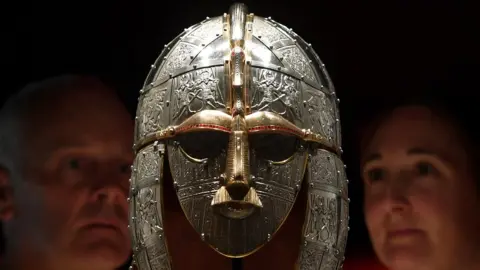 PA Media
PA MediaOne of the "greatest archaeological discoveries of all time" has been given a £4m revamp.
Sutton Hoo, near Woodbridge in Suffolk, is believed to contain the grave, burial ship and burial treasures of King Rædwald - the 7th Century Anglo-Saxon ruler of East Anglia.
As part of the site's overhaul, pictures from the discovery and excavation in 1939 have been put on display.
The regeneration is the largest single investment by the National Trust at Sutton Hoo - and includes a £1.8m grant from the National Lottery Heritage Fund.
Allison Girling, from Sutton Hoo, said the photos "helped us share more of the story and the people behind it".
She said the photographs "captured such a wonderful visual record of the excavation" describing it as a "close and intimate look at how the dig unfolded".
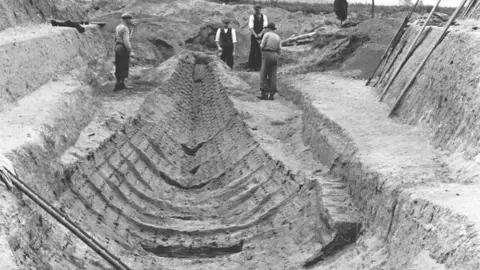 Trustees of the British Museum
Trustees of the British Museum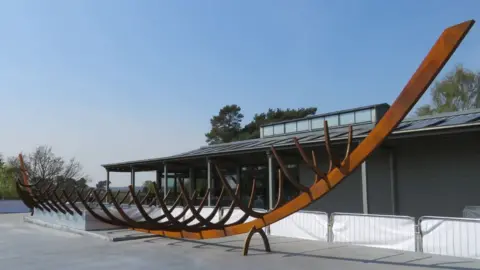 National Trust
National Trust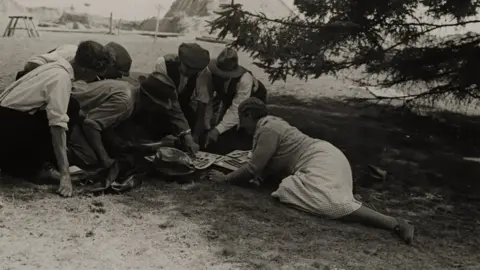 Trustees of the British Museum
Trustees of the British MuseumThe extraordinary ship burial was revealed after landowner Edith Pretty called in local archaeologist Basil Brown to investigate a series of mysterious earth mounds on her estate on the Deben estuary.
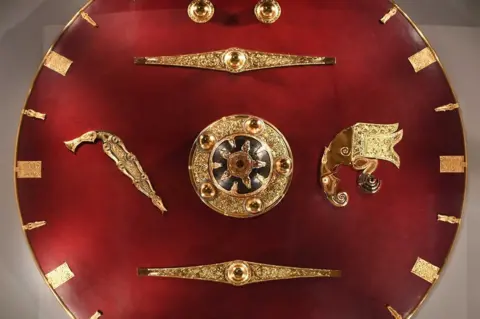 PA Media
PA MediaHis discovery of a 1,300-year-old ship burial, including a warrior's helmet, gold belt buckle, sword and shield, revolutionised historians' understanding of the 7th Century, when England was divided into Anglo-Saxon kingdoms.
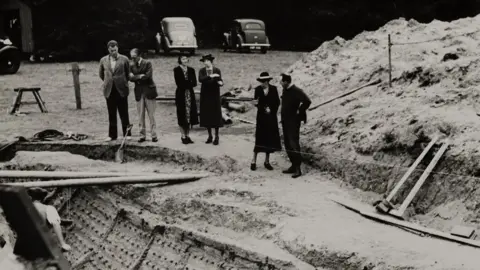 Trustees of the British Museum
Trustees of the British Museum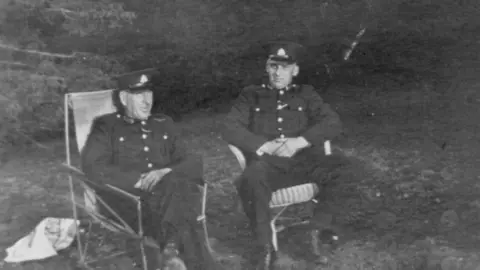 Suffolk County Council
Suffolk County CouncilSue Brunning, from the British Museum, said: "The Sutton Hoo ship burial is one of the greatest archaeological discoveries of all time."
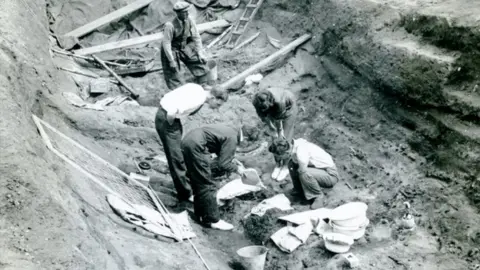 Trustees of the British Museum
Trustees of the British Museum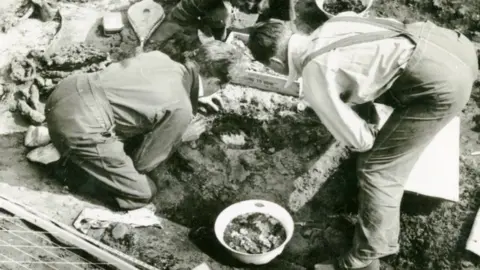 Trustees of the British Museim
Trustees of the British MuseimVisitors will see a full-size sculpture of the ship, renovations at Mrs Pretty's home of Tranmer House, and new routes and walkways through the landscape.
A 17-metre (56ft) observation tower, offering bird's eye views over the site, will open in the autumn.
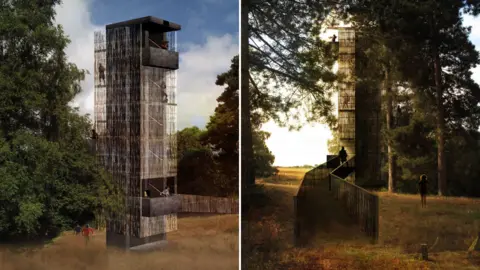 NAtional Trust
NAtional Trust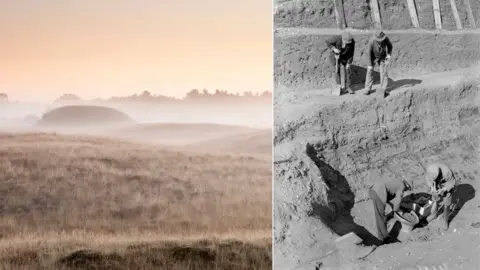 NAtional Trust
NAtional Trust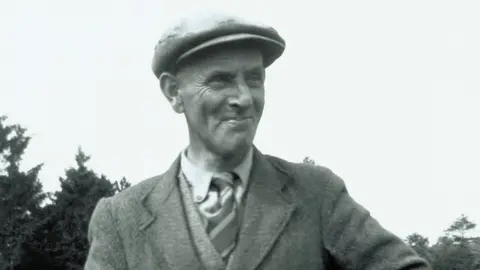 Trustees of the British Museum
Trustees of the British MuseumSutton Hoo archaeology and engagement manager Laura Howarth said: "We wanted to create an experience which really does justice to this incredibly important heritage site."
The site could be set for a further boost with filming starting next month on The Dig, a film about the 1939 discovery, with Nicole Kidman and Ralph Fiennes starring as Edith Pretty and Basil Brown.
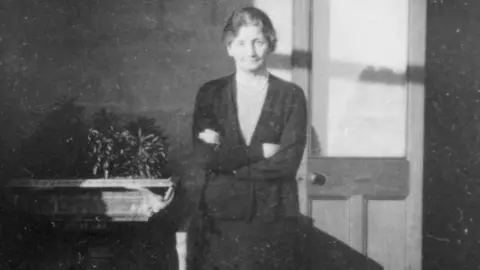 National Trust
National Trust